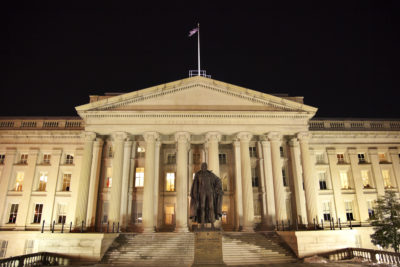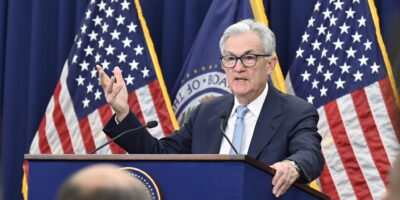Raising interest rates: The Fed vs. The Treasury?
In its latest meeting, the Federal Open Market Committee (FOMC) decided to not increase the Federal funds rate target, extending the lower zero bound policy until at least their next meeting. Although the decision was not unexpectable, some people did find it a bit surprising. The post 2008 recovery has been one of the slower ones in U.S. history and its fair to say that if it were possible, the Fed would likely push interest rates below zero percent.
The unemployment rate has decreased from 10 percent in 2009 to close to 5 percent today. The core-CPI inflation rate, though not showing an upward trend, does depict values close to 2 percent (between 1.70 and 1.80 percent) on a yearly basis. It would seem, then, that the Fed is concerned with more than just unemployment and inflation, its mandated responsibilities. Three key issues come to mind.
First, the outlook of an overall economic slowdown, both at home and abroad. At home, U.S. GDP could be affected through decreased global demand (exports.) Abroad, we have already seen both Europe and China suffer from weak economic performances.
Second, a concern about the future situation of financial markets around Chinese and other foreign stock exchanges. If a fall in the market value of financial assets is expected to have a negative impact on banks’ solvency, the Fed might be inclined to avoid having a negative impact on the price of financial assets by raising interest rates.
Third, an increase in interest rates could have a significant impact on the burden of the sovereign debt on the shoulders of the Treasury. The level of government debt is high, and recent years have show how that brings tension between the White House and Congress. A further increase in the cost of debt to the Treasury could trigger further tension in the run up to 2016.
Not much has been said about the third point. It is also hard to say how much attention the Fed pays to this issue since it is not always clear and transparent about its concerns and targets. With that said, I seriously doubt this trade-off goes unnoticed.
This is unfortunate as the role of our monetary authority is, or should be, to create and protect a sound monetary framework, not to facilitate the Treasury from acquiring more debt. For government debt to not increase indefinitely, it should be used as a tool to finance cyclical deviations from a structural balanced budget. Some years, debt is issued to finance a deficit; other years, surpluses are used to cancel debt. The Treasury has allowed debt to go beyond prudential limits, potentially affecting the Fed’s monetary policy decision making. Sound money requires a sound budget.










